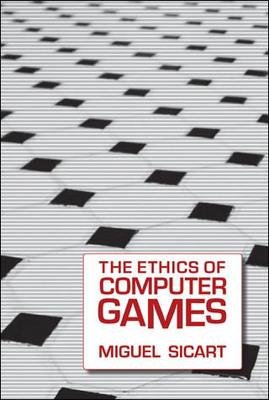- MENU
- HOME
- SEARCH
- WORLD
- MAIN
- AFRICA
- ASIA
- BALKANS
- EUROPE
- LATIN AMERICA
- MIDDLE EAST
- United Kingdom
- United States
- Argentina
- Australia
- Austria
- Benelux
- Brazil
- Canada
- China
- France
- Germany
- Greece
- Hungary
- India
- Indonesia
- Ireland
- Israel
- Italy
- Japan
- Korea
- Mexico
- New Zealand
- Pakistan
- Philippines
- Poland
- Russia
- South Africa
- Spain
- Taiwan
- Turkey
- USA
- BUSINESS
- WEALTH
- STOCKS
- TECH
- HEALTH
- LIFESTYLE
- ENTERTAINMENT
- SPORTS
- RSS
- iHaveNet.com
Troy Goodfellow, Crispy Gamer Videogame Reviews

The Ethics of Computer Video Games
They require player input and, therefore, some level of player reflection. This interactivity, some argue, makes games a superior form of entertainment. You can give players choice; you can give players immediate feedback about the consequences of their decisions. And, if this year's E3 is any indication, this "moral choice" understanding of game narrative is still running strong.
Attendees at the Brink demonstration were given the chance to vote on looting a weapons locker, with horrible consequences; and romance in "Dragon Age: Origins" was reduced to a bad girl/good girl decision. And last month's "Infamous" was almost a parody of ethical choices as seen in gaming; if it hadn't so closely resembled so many other games I would be convinced it was satire.
But what if we understand ethics and games in a different way?
In his book "The Ethics of Computer Games," philosopher Miguel Sicart argues that interactivity means more. For him, player control makes games "ethical objects" -- a fancy phrase meaning that game design can be ethical or unethical, based not on its content but on whether it pushes players to consider the consequences of their choices.
For example, the big reveal near the end of "BioShock," where you learn how little control your character actually had over his actions, is hailed as an important ethical statement since it forces you to reconsider everything you have done up to that point. Conversely, the Dark/Light decisions in "Knights of the Old Republic" are an example of unethical game design for Sicart, since they boil ethics down to whether your decision helps you unlock specific powers or plot elements. This is not an ethical design choice even if it is couched in ethical terms.
This distinction leads Sicart in some curious directions.
The widely reviled "Manhunt" is a game in which killing is the only choice, and it consistently pushes the player deeper into unethical and non-virtuous behavior. Reflection, Sicart suggests, is inevitable. Meanwhile, he argues that "XIII," which insists that you can't kill the police, would be better if you had to face the consequences of cop-killing. An ethical game is one that forces players to confront their actions.
It's almost perverse to think that games that remove or limit choice could be ethically superior. But being able to control your character's ethical being is not the same as reflecting on the ethics of your character. The pointless decision about whether to kill Little Sisters in "BioShock," and the buy-your-way-to-neutrality option in "Fable," are implied to be examples of bad game design. Pretending that your game has an ethical component is worse than simply not addressing the issue at all.
This is, admittedly, a very novel way of looking at game design. Though many in the serious games movement have consciously worked to invoke reflection and emotion, it's doubtful that the makers of "Manhunt" were driven by a desire to make a meditative commentary on violence. And, of course, many games are simply outside of ethical discussion. "Tetris" and "Bejeweled" and maybe even "DOOM" are rather trite as objects of ethical inquiry. Move blocks. Match gems. Kill demons. Not a lot to think about.
In terms of ethics, the game-development community is still wedded to the choice-and-consequences model.
But what is the payoff for gamers? I still run into many gamers who insist that, so long as the game is "fun," nothing else really matters or is even worth talking about. A good ending and an evil ending are reasons to keep playing, not reasons to doubt the convictions of the developers. Sicart is an academic, so is this just more pointy-head musing about stuff that will never filter down to the rest of us?
I hope not. Gamers who see "Shadow of the Colossus" as no more than an artistic platform/action game are missing its elegant sadness. If we, as gamers, insist that games are valuable media that affects us emotionally -- even if that emotion is just joy -- then we have to leave room to question whether a game that pretends to be about moral choice really is. Or whether an action game about insurgency, according to the developer's claims, has nothing to do with ongoing real-world wars.
Still, for every gamer who sees a decision tree as a way to "game the system," there's another one asking what their character should do in that situation. Even if "Knights of the Old Republic" is just math, some people won't play evil -- because they know what evil is, and it doesn't speak to their souls. For all the talk about ethical game design, there is little talk about ethical game-players (massively-multiplayer online games aside), and a game without a player isn't much use at all.
The Ethics of Computer Games Available at Amazon.com